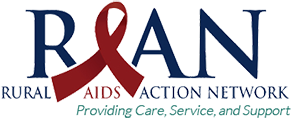HIV & Hepatitis C Testing
At RAAN, we are committed to providing accessible, confidential, and reliable testing services for HIV and Hepatitis C (HCV). Early detection is important for effective treatment and prevention of transmission. Our testing services are designed to be quick, convenient, and supportive.
Not sure if you should get tested? Check out our frequently asked questions below or give us a call to learn more.
Routine testing is recommended for everyone aged 13 to 64 at least once, as part of regular healthcare. More frequent testing is advised if you:
- Have had unprotected vaginal, oral, or anal sex.
- Have multiple sexual partners.
- Have shared needles or injection equipment.
- Have been diagnosed with or sought treatment for another sexually transmitted infection (STI).
- Have exchanged sex for money or drugs. CDC · Have had sexual partners who engage in any of the above behaviors. CDC
Regular testing is necessary for early detection and treatment of HIV and Hepatitis C. It’s important to get tested if you think you may be at risk. Early diagnosis can help manage and treat these conditions effectively.
Knowing your HIV and HCV status empowers you to make informed decisions about your health and the health of others. Early detection allows for timely medical intervention, reducing the risk of serious health complications and preventing the spread of these infections.
If you are interested in getting an HIV or Hepatitis C test done, please call 1-800-966-9735. You will then be directed to a RAAN office in your area that can conduct the testing. RAAN’s offices in St. Cloud, Moorhead, Duluth, and Mankato offer both HIV and Hepatitis C rapid testing.
When you come in for a test, the testing counselor will conduct a brief risk assessment, and ask any questions you may have about testing.
Please call our toll-free number or your local RAAN office for testing hours, as they may vary by location.
To inquire about free and confidential HIV and HCV testing in your area, please call our toll-free number: 1-800-966-9735.
- Pre-Test Counseling: Our health educators will conduct a brief risk assessment and answer any questions you may have about the testing process.
- The Test: A quick fingerstick will be performed to collect a small blood sample.
- Results: You'll receive your results during the same visit, along with post-test counseling to discuss the outcome and any necessary follow-up steps.
If you are infected with HIV or Hepatitis C, your body produces antibodies that can be detected by the rapid tests. You will receive either a non-reactive or reactive test result. A non–reactive test result means that no antibodies have been detected. A reactive means there were antibodies detected.
It is important to know that it can take up to three months after you have been exposed to HIV or Hepatitis C for your body to produce enough antibodies to be detected by the test.
If your result is non–reactive, but you’ve had a risk for HIV or Hepatitis C in the past three months, it’s recommend that you return for another HIV or Hepatitis C test three months following your most recent risk.
A reactive test result means the test detected HIV or Hepatitis C antibodies. All reactive tests must be confirmed with a blood draw that is sent to a medical laboratory. Rural AIDS Action Network does not do confirmatory testing but your testing counselor will help you find a clinic in your area that does.
Nothing! All RAAN testing services are offered free of charge.
Your privacy is our priority. All information shared during your testing session is protected under HIPAA regulations and Minnesota data privacy laws. You have the option to test anonymously or confidentially, depending on your preference.
We offer rapid tests for both HIV and HCV. These tests involve a simple fingerstick and provide results within approximately 30 minutes. You are not required to stay and wait, however, we do ask that you return to receive your results in-person.
Our testing procedures adhere to the highest standards to ensure accurate and reliable results. In the event of a reactive (preliminary positive) result, we will guide you through the next steps for confirmatory testing and care.
Take Control of Your Health
Regular testing is a proactive step toward maintaining your health and preventing the spread of HIV and HCV. RAAN is here to support you with compassionate care, accurate information, and the resources you need.
It’s important to get tested if you think you may be at risk. Early diagnosis can help manage and treat these conditions effectively.
To inquire about free and confidential HIV testing in your area, make the toll-free call at:
1-800-966-9735
